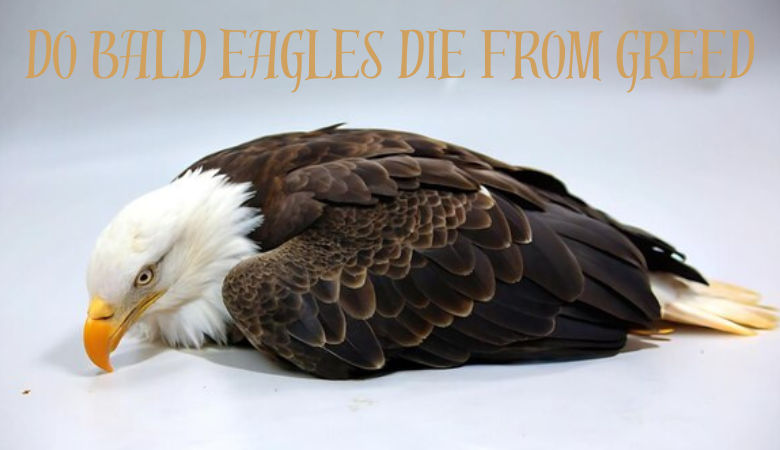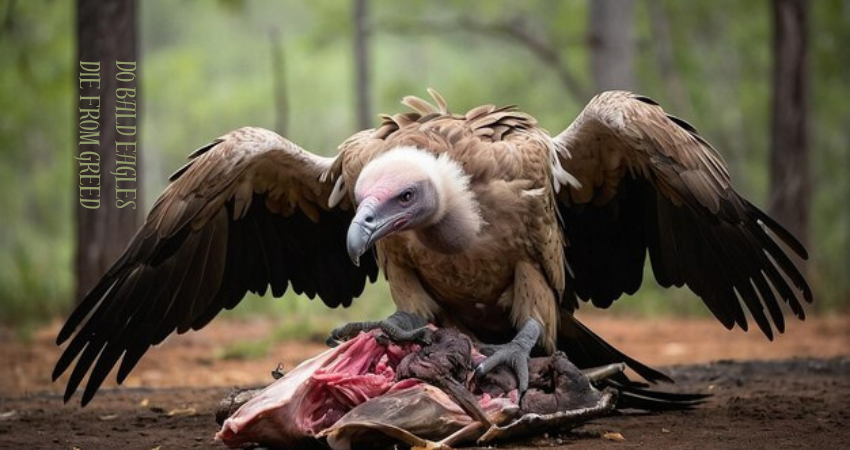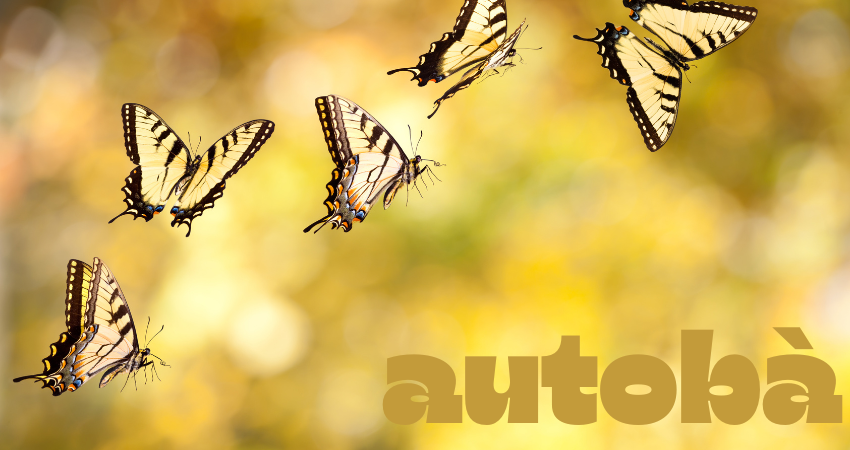Do bald eagles die from greed

The sky, once home to boundless freedom, hosts the majestic flight of the bald eagle, wings outstretched against the endless blue. These do bald eagles die from greed, symbols of strength, independence, and the soaring spirit of the wild, live their lives above the tangled complexities of the world below. Yet, even in the purity of their flight, is there something more tragic at play? Could these creatures, icons of resilience, succumb to a flaw so deeply human—greed?
The Majestic Bald Eagle: Symbol of Freedom
Few creatures in nature carry the weight of symbolism like the bald eagle. From the talons that grip mountainside branches to the eyes that scan rivers for prey, the bald eagle is the embodiment of untamed freedom. They fly high, untethered by chains, and glide across winds that whisper tales of a wilderness untouched by human hands.
But in the heart of this creature of the skies, could greed be a hidden force, an unseen flaw? Could something as natural as hunger twist into a desperate grasp, leading them down a path they do not intend?
A Glimpse into the Nature of Eagles
Eagles, especially bald eagles, are renowned hunters. With a wingspan that can stretch nearly eight feet, they are built to soar, to search, and to seize. Their sharp talons are made to grasp fish, their primary prey, from the shimmering surface of rivers and lakes.
But nature is unforgiving, and survival demands more than mere skill. The eagle’s world is one of competition, scarcity, and sometimes, danger. And in the face of that danger, even the most graceful beings may find themselves driven by instincts that push them toward greed.

When Survival Becomes Greed
In the wild, there is no room for error. Hunger presses on all creatures like a shadow. For the bald eagle, this hunger often manifests in moments of opportunity. Spotting a fish glistening just beneath the water’s surface, an eagle will swoop down with breathtaking precision, talons slicing through the wind, ready to take what is theirs.
But what happens when the eagle is no longer hunting for survival, but for something more—an insatiable urge to take even when it doesn’t need? When a full stomach doesn’t quell the drive, when abundance only leads to a desire for more—could this be greed?
Stories of Eagles and the Price of Greed
There are tales whispered by those who have observed the do bald eagles die from greed up close, stories that echo the ancient fables of old. Some say that an eagle, after catching more fish than it can eat, will sometimes continue to hunt, driven by a primal, almost uncontrollable urge. The eagle’s talons grip tightly to its prize, unwilling to let go, even if the weight drags it under.
In some instances, the eagle, refusing to release the extra fish it has caught, finds itself burdened by the weight of its catch, unable to rise again into the safety of the sky. Drowned by its own greed, the eagle becomes a tragic symbol—a creature that falls, not from weakness, but from a desire to have more than it needs.
The Thin Line Between Survival and Excess
What separates survival from greed? In a world where scarcity defines every action, the difference can be as fragile as the wind that carries an eagle’s wings. For the bald eagle, the instinct to hoard, to hold on tighter, may be rooted in fear—a fear of not having enough in a world that offers no guarantees.
The Impact of Human Influence
Human presence has exacerbated these pressures on wildlife. With habitats shrinking and food sources dwindling, bald eagles are more likely to face competition over what remains. When an eagle fights for what little it can find, can we still call it greed? Or is it a reflection of the world we’ve left them with?
Greed as a Reflection of Humanity
Perhaps the question of whether bald eagles die from greed is not a question about the eagles themselves but about us. We project our own flaws onto them, seeing in their behavior a reflection of our own struggles with consumption and excess. The eagle’s fall, if it is from greed, is a mirror held up to humanity—a reminder that even the purest of beings are not immune to the traps we lay for ourselves.
Greed: A Tale Older Than Time
From ancient myths to modern cautionary tales, greed has always played a pivotal role in human stories. The idea that even the strongest could be undone by their own desires is a theme that resonates through time. Bald eagles, in their silent grace, become part of this timeless story, whether they intend to or not.
Nature’s Balance: A Lesson from the Skies
Yet, in every story of greed, there is also a lesson of balance. Nature, in its wisdom, offers both bounty and restraint. The bald eagle, in its greatest moments, understands this balance. It takes what it needs, and no more. It leaves behind enough for life to flourish again.

Do Bald Eagles Truly Fall from Greed?
While some may believe that bald eagles die from greed, the truth is likely more nuanced. It may not be greed in the human sense, but an overextension of the instinct to survive. In a world that demands so much from its creatures, sometimes the line between survival and greed blurs.
Conclusion: The Tragic Beauty of the Bald Eagle’s Flight
The bald eagle remains a symbol of freedom, but within that freedom lies a vulnerability. They live by the grace of the wind and the strength of their own talons, but even they are not immune to the perils of greed. Perhaps, in the end, it’s not greed that leads to their fall, but a reminder that all creatures, no matter how high they soar, are bound by the laws of nature.
FAQs
Can eagles really die from greed?
While not greed in the human sense, eagles can overextend themselves when hunting or hoarding food, which may lead to tragic outcomes.
Why do eagles sometimes catch more than they need?
Eagles operate on instinct, and in the wild, this instinct can lead them to seize opportunities when they arise, even if they already have enough.
Is human activity affecting eagle behavior?
Yes, habitat destruction and food scarcity caused by humans can push eagles to act more aggressively, which may resemble greed.
Are there other animals that show signs of greed?
Many animals exhibit behaviors that might be seen as greedy, but it’s often driven by survival instincts rather than excessive desire.
How can we help protect eagles and their habitats?
Supporting conservation efforts, protecting natural habitats, and reducing pollution can help ensure that eagles have the resources they need to thrive.
